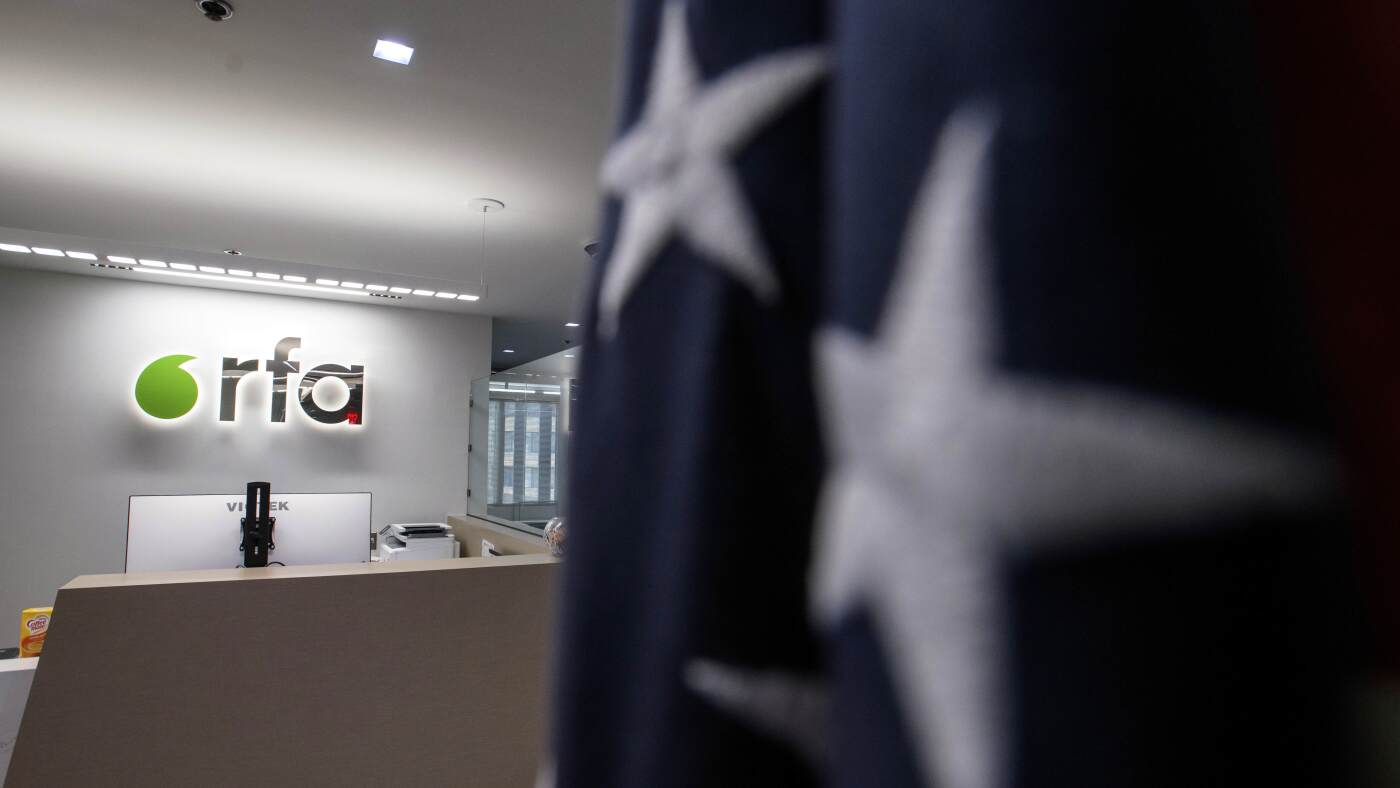The Impact of Funding Cuts on Radio Free Asia
The Unfolding Crisis
Imagine a beacon of truth and democracy suddenly dimming. That’s the reality facing Radio Free Asia (RFA), a pivotal voice in Asia’s struggle against authoritarianism. The organization is grappling with an existential crisis, having been forced to lay off around 90% of its staff due to severe funding cuts imposed by the Trump administration. This drastic measure follows the U.S. Agency for Global Media (USAGM) terminating congressionally-appropriated grants, leaving RFA struggling to keep its operations afloat.
The Funding Battle
The funding crisis at RFA is not an isolated incident but part of a broader conflict between the broadcaster and the Trump administration. The administration’s decision to withhold congressionally allocated funding, despite a federal judge ruling in favor of RFA, has left the organization in an “unconscionable situation,” as described by Bay Fang, RFA’s president and CEO. This move is not unique; other U.S.-funded international broadcasters, such as Radio Free Europe/Radio Liberty and the Middle East Broadcasting Networks, are facing similar challenges.
The battle over funding is more than just a fiscal dispute; it’s a struggle for the soul of independent journalism and democracy promotion. The Trump administration’s actions have raised concerns about the future of U.S.-funded media outlets and their crucial role in promoting democracy and human rights globally.
The Immediate Consequences
The mass layoffs at RFA have immediate and far-reaching implications. With most of its staff laid off, RFA is effectively shutting down many of its language services and news broadcasts. This reduction in reporting capacity will significantly limit coverage of critical issues in Asia, particularly in regions like Xinjiang and Tibet, where authoritarian regimes often suppress free speech and human rights.
The layoffs also mean that RFA’s journalists, who have dedicated their careers to reporting on sensitive and dangerous topics, are left in a state of uncertainty. Many are facing unemployment, and some even fear deportation. This situation highlights the vulnerabilities faced by journalists working in high-risk environments who rely on stable funding to carry out their work.
The Role of USAGM
The USAGM, under the leadership of Kari Lake, a senior advisor to the Trump administration, has been a significant player in implementing these funding cuts. Lake’s actions have sparked concerns about the future of U.S.-funded media outlets. The termination of grants has left RFA and other broadcasters in a precarious position, struggling to maintain their operations and fulfill their missions.
The USAGM’s role in this crisis is a stark reminder of the power that funding agencies hold over media outlets. It also raises questions about the political motivations behind these funding cuts and the potential consequences for democracy and human rights promotion.
The Broader Implications
The crisis at RFA is a microcosm of a larger issue: the struggle for independent journalism and democracy promotion in the face of authoritarianism. The funding cuts and layoffs at RFA have broader implications for U.S.-funded media outlets and their role in promoting democracy and human rights.
As RFA struggles to maintain its operations, the international community watches closely. The future of RFA is uncertain, but the fight for free speech and independent journalism is ongoing. The support of the global community is essential to ensure that these voices continue to be heard.
The Human Cost
Behind the headlines and the political maneuvering, there are real people affected by these funding cuts. The journalists at RFA are not just employees; they are individuals who have dedicated their lives to reporting on sensitive and dangerous topics. They are the ones who will bear the brunt of these funding cuts, facing unemployment and uncertainty.
The human cost of these funding cuts is a stark reminder of the importance of supporting independent journalism. It’s not just about the stories that get told; it’s about the lives of the people who tell them.
The Road Ahead
The road ahead for RFA is uncertain. The organization is trying to continue operations with a “skeleton staff,” but the long-term viability of its mission is in question. The layoffs and funding cuts have raised concerns about the broader implications for U.S.-funded media outlets and their role in promoting democracy and human rights.
As RFA navigates this crisis, it’s crucial that the international community comes together to support the organization and other broadcasters facing similar challenges. The fight for free speech and independent journalism is ongoing, and the support of the global community is essential to ensure that these voices continue to be heard.
A Call for Support: The Fight for Free Speech
The crisis at Radio Free Asia is a call to action for the international community. It’s a reminder of the importance of independent media in promoting democracy and human rights. As RFA faces an uncertain future, it’s crucial that we come together to support the organization and other broadcasters facing similar challenges.
The fight for free speech and independent journalism is ongoing, and the support of the global community is essential to ensure that these voices continue to be heard. Let’s not let the beacon of truth and democracy dim. Let’s stand together and support Radio Free Asia in its time of need. The future of independent journalism and democracy promotion depends on it.








